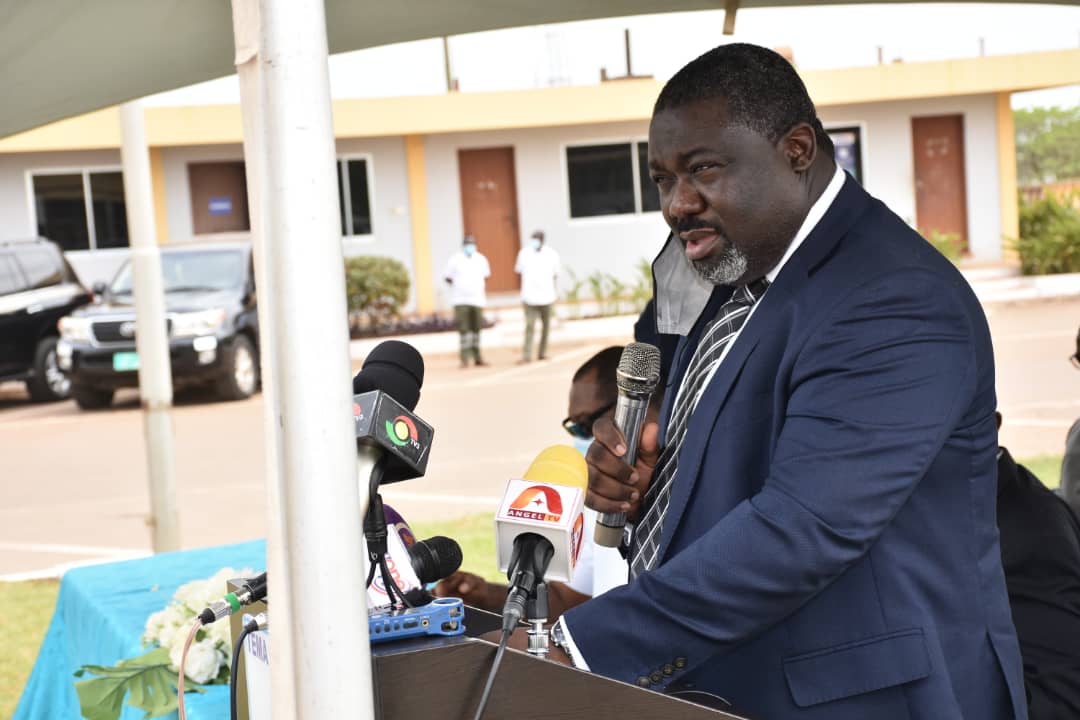
TOR awaits 4th MD in 5yrs
The Tema Oil Refinery (TOR) is waiting the appointment of a fourth Managing Director (MD) in five years after its MD, Mr Francis Boateng, and his deputy, Mr Herbert Ato Morrison, were relieved of their posts last week.
The two were asked to step aside by the Ministry of Energy in a routine gesture that exemplifies the power of workers at the troubled national refinery. It followed months of sustained agitations by workers against the management over allegations of mismanagement and the accumulation of statutory payments, among others.
Earlier, the ministry had led a series of meetings with the management and workers on how to return industrial harmony to the national refinery to help design a revival strategy initiated by the board and management successful.
The Graphic Business learnt that in the course of the discussions, the government bowed to the pressure from the workers and asked Mr Boateng, who was appointed about 14 months ago, and Mr Morrison, who had worked with TOR for about three decades prior to his elevation in May last year, to leave.
Read : Mahama promises to revamp Tema Oil Refinery, BOST
Frequent changes
The action has set off a fresh hunt for a fourth successive MD for the refinery in a spate of five years.
After taking office in January 2017, President Nana Addo Dankwa Akufo-Addo appointed the former Ambassador to the United Kingdom and Ireland, Mr Isaac Osei, as MD of TOR. Mr Osei, however, resigned in December 2019, prompting the appointment of Mr Kweku Asante Berko as his replacement in January last year.
He also resigned in April that year over allegations of his involvement in a scandal reported by the Securities and Exchange Commission of the USA.
Mr Berko was then replaced by Mr Boateng, the former General Manager for Commercial Operations at the Ghana National Gas Company and now the immediate past MD of TOR, to help bail the refinery out of troubled waters.
After 14 months in charge, however, Mr Boateng is exiting.
Read:8. Govt reacts to Jinapor's claims and denies mismanaging oil revenue
Impact
The Executive Director of the Africa Center for Energy Policy (ACEP), Mr Benjamin Boakye, said the frequent changes in MDs was not helpful to the refinery.
He said it did not allow for maturity of ideas and policies and that was inimical to the fortunes of the company.
He said it was unfortunate that the government, which is the 100 per cent shareholder, had been convinced into accepting that MDs were the causes of the challenges facing TOR.
“The problem is not about changing MDs. It is about changing the body, the structure and the people who manipulate the refinery from outside,” he said.
He said ACEP, which was an energy sector think tank, was preparing to issue a report on the frequent changes in MDs and the fortunes of the refinery to help refocus the conversation around the real challenges facing the refinery.
Read: SOEs share their stories
TOR in perspective
A strategic national asset, TOR was established in 1963 to provide refined petroleum products to the local and regional markets to aid economic growth.
The company has evolved over the years, transforming itself from being a sole supplier of refined petroleum products into a player in a deregulated and highly concentrated downstream petroleum sector.
In the face of challenges, the refinery has chalked up some rare feats in recent times, including replacing its exploded furnace, being supplied one million barrels of crude oil by BP Oil to process and entering into an 11-million-barrel processing contract with Vitol-backed Woodfields Energy Resources.
Unlike previous instances, the crude oil contracts were without the usual demand for a bank or government guarantee, as well as letter of credit, which often returned to hurt the company.
This demonstrates that the refinery has the potential to be viable and partners are conscious of that.
The Energy Ministry and TOR’s management have also secured a special arrangement for the refinery to import finished products as blending stock and also sell to shore up its finances. Through this, TOR can utilise its legal mandate of trading in finished products during a maintenance shutdown period.
The company was also able to sustain its workforce, comprising more than 600 workers, in the face of the devastating effects of the COVID-19 pandemic.
The refinery was now in the process of implementing a profitability improvement plan that hinges on leveraging the support of the shareholder — the government, through the Ministries of Energy and Finance, as well as the State Interest and Governance Authority (SIGA) — to recapitalise the refinery and generally strengthen its operations with policies.
